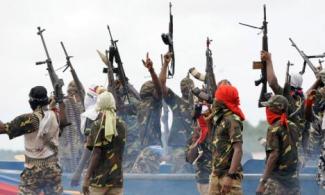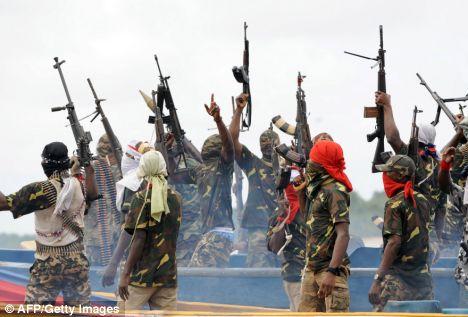
The journalist, Abiri, was whisked away from his office in Ekeki, Yenagoa by DSS operatives on July 21, 2016 and accused of leading a militant group known as the Joint Niger Delta Liberation Front (JNDLF).
A Bayelsa State High Court presided over by Justice Ineiye Aganaba has ordered the Department of State Security (DSS) to charge a journalist and publisher of the Weekly Source for his alleged involvement in Niger Delta militancy.
The journalist, Abiri, was whisked away from his office in Ekeki, Yenagoa by DSS operatives on July 21, 2016 and accused of leading a militant group known as the Joint Niger Delta Liberation Front (JNDLF).
The DSS alleged that Mr. Abiri was known in the group by his nom de guerre, General Akotebe Darikoro, and that his militant organization had “separatist tendencies.” He also operated under the alias “General Kill-and-Bury,” the DSS alleged.
The DSS also claimed that Mr. Abiri confessed and owned up to some criminal activities committed by the JNDLF.
But ruling on the application filed by the defense lawyer, Jeremiah James Wareyai, against the respondent, the judge said the matter before the court bordered on fundamental human rights violations.
He further said that State and Federal High Courts had requisite jurisdiction to hear matters concerning the fundamental human rights of accused persons who are in the custody of the police and other security agents.
However, the judge noted that the alleged offenses committed by the accused person relate to terrorism and mutiny. He therefore upheld the application lodged before the presiding judge.
The presiding judge, quoting relevant sections of the law and the constitution, upheld the respondent’s application to try the matter before a Federal High Court.
The matter, which was brought before the court by the defense lawyer seeking the fundamental human rights of his client, was upheld before the presiding judge.
Consequently, DSS lawyer, Victor C. Uchendu commended the ruling, stressing that the judiciary was in partnership with security agents in fighting crime in Nigeria.
He told the court that the delay in charging the alleged militant leader was a result of the intensive investigation by security agents to unravel all those behind the crime before charging them to court.
However, the defense lawyer was dissatisfied with the ruling, saying that the matter had political undertones and his next step was to go to the Federal High Court to further seek his client’s fundamental human rights.
